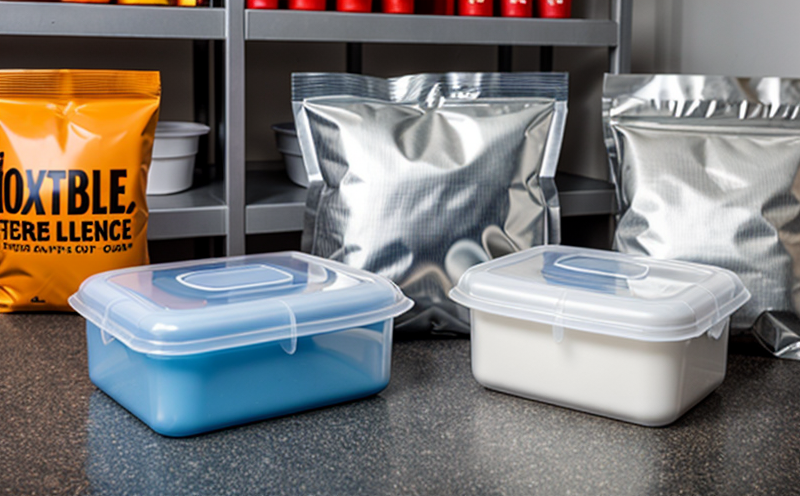ASTM D1974-14 Handling Test for Flexible Packaging
The ASTM D1974-14 Handling Test is a critical procedure used to evaluate the physical robustness and durability of flexible packaging materials. This test is essential in determining whether the packaging can withstand the stresses encountered during handling, storage, and distribution without compromising its integrity.
During this test, samples are subjected to repeated flexing between two parallel plates that move towards each other at a specified speed. The number of cycles to failure or the amount of deflection before failure is recorded as the result. This information helps manufacturers understand how their products will perform in real-world conditions and ensures compliance with quality standards.
The test setup typically involves a machine designed specifically for ASTM D1974, which includes two parallel plates that are capable of moving at a controlled speed. The plates apply force to the sample by bringing them together repeatedly until failure occurs or a predetermined number of cycles is reached.
Specimen preparation plays a crucial role in ensuring accurate test results. Samples must be cut from the material under consideration, avoiding areas where defects may occur. The specimens should also be conditioned according to the specified requirements before undergoing testing.
The ASTM D1974-14 Handling Test is widely used across various industries that rely heavily on flexible packaging materials such as food processing, pharmaceuticals, and consumer goods. By providing reliable data on material performance during handling, this test aids in improving product design and enhancing overall quality control.
Compliance with ASTM D1974 ensures that the packaging meets the necessary strength requirements for safe transport and storage. Non-compliance could lead to issues such as compromised product integrity or potential safety hazards associated with improper packaging.
| Standard | Description |
|---|---|
| ASTM D1974-14 | This standard specifies the procedure for conducting a handling test on flexible packaging materials. |
| ISO 2856:2013 | An international standard that provides guidelines for mechanical testing of plastic films and sheets used in packaging applications. |
Why It Matters
The importance of the ASTM D1974-14 Handling Test cannot be overstated, especially for industries reliant on flexible packaging. The test helps ensure that packages can endure the rigors of transport without sustaining damage or compromising their protective properties.
- It guarantees product integrity throughout distribution and storage processes.
- Aids in identifying weaknesses within the packaging structure early in development stages.
- Facilitates compliance with regulatory requirements for safe handling of goods.
Incorporating this test into your quality assurance protocols can significantly enhance customer satisfaction by delivering reliable and robust packaging solutions. Moreover, it supports sustainable practices by minimizing waste caused by premature failure during use.
Industry Applications
- Food Industry: Ensures safe transport of perishable items like fruits and vegetables without compromising freshness.
- Pharmaceuticals: Protects medications from environmental factors that might affect their efficacy or stability.
- Consumer Goods: Maintains the integrity of everyday products during transit to ensure they reach consumers in pristine condition.
The ASTM D1974-14 Handling Test is particularly valuable for businesses operating internationally, as it provides consistent results across different environments and climates. This consistency enhances brand reputation and builds consumer trust.





